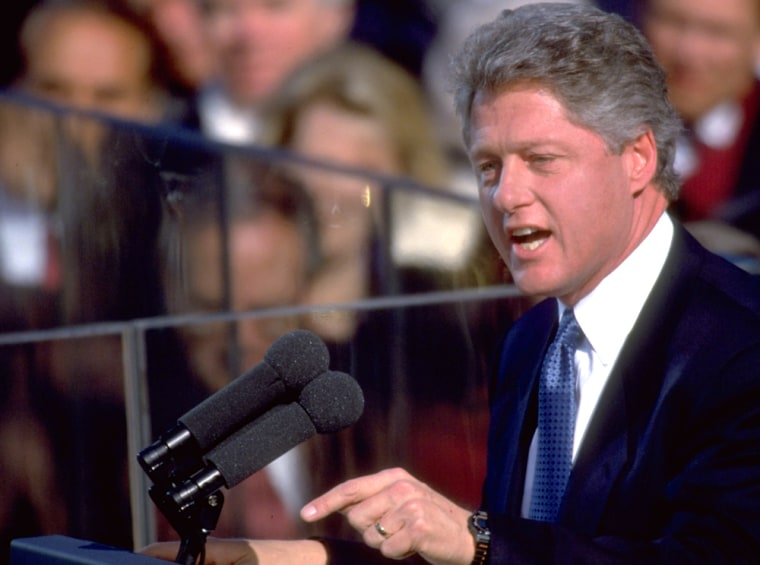Abraham Lincoln used the occasion to speak of “the better angels of our nature.’’ Franklin Delano Roosevelt used it to warn Americans that “the only thing we have to fear is fear itself.’’ John F. Kennedy urged Americans to “ask what you can do for your country.’’ Inauguration Day is arguably America’s greatest moment, a time of new hopes and new beginnings, which is perhaps why Bill Clinton opened his 1993 address by saying, “Today we celebrate the mystery of American renewal.’’
On Tuesday, Senator Barack Obama will become our 44th President. He will take an oath prescribed in the Constitution and administered by Chief Justice John G. Roberts Jr. Every four years, this ceremony—culminating in the new President’s inaugural address—transforms the nation’s hopes, its political system, its outlook, and its profile abroad. That is a big burden for one day, but the United States is a big country, and the Presidency involves big aspirations.
What makes a great inaugural address? George H.W. Bush created a shorthand for the nation’s mood and goals when he promised in 1989 “to make kinder the face of the nation and gentler the face of the world.’’ FDR challenged the country’s principles in 1937 by saying, “I see one-third of a nation ill-housed, ill-clad, ill-nourished.’’ And JFK captured a collective sense of purpose in his 1961 address: “With a good conscience our only sure reward, with history the final judge of our deeds, let us go forth to lead the land we love, asking His blessing and His help, but knowing that here on earth God’s work must truly be our own.”
Over the years, Presidents have changed inauguration rituals, through their actions as well as their words. Determined that his Presidency was to be the people’s, Andrew Jackson turned his 1829 swearing-in into a populist celebration. Jimmy Carter abandoned his limousine in 1977 and walked down Pennsylvania Avenue, an emblem of openness in the wake of the secrecy of the Watergate era. Ronald Reagan moved the ceremonies from the East Front of the Capitol to the West in 1981—an important symbol for a man who sought to change direction and for a nation that has always looked West for opportunity.
Above all, an inauguration is a symbol. Lincoln’s first, in 1861, took place against a backdrop of scaffolding on the Capitol, a scene forever regarded as a symbol of a country still under construction. Seemingly overcome by the crowd and the difficulties before him, the new President ended his crowning moment of public achievement with a plea: “We are not enemies, but friends. We must not be enemies. Though passion may have strained it must not break our bonds of affection.’’
Inaugurations often arrive at fateful moments. Reagan’s came as 52 American hostages in Iran were being freed after 444 days of captivity, a drama that convulsed the nation. FDR’s came as the word “Depression’’ was becoming a metaphor for the nation’s mental state. And without hat, gloves, or coat on a cold March day in 1841, our ninth President, William Henry Harrison, delivered the longest inaugural address in history, about 100 minutes, and then served the shortest Presidency, a month. His death was attributed to the elements. His speech is all but forgotten today.
One inaugural address, however, still lives in the hearts of all Americans. It was given in 1865 by Lincoln, whose Bible will be used by Obama on Tuesday. Perhaps the greatest speech ever given on American soil, it ends: “With malice toward none, with charity for all, with firmness in the right as God gives us to see the right, let us strive on to finish the work we are in, to bind up the nation’s wounds...to do all which may achieve and cherish a just and lasting peace among ourselves and with all nations.’’ Six weeks later, Lincoln was dead, but his words and hopes live on, America’s great legacy on America’s greatest day.
